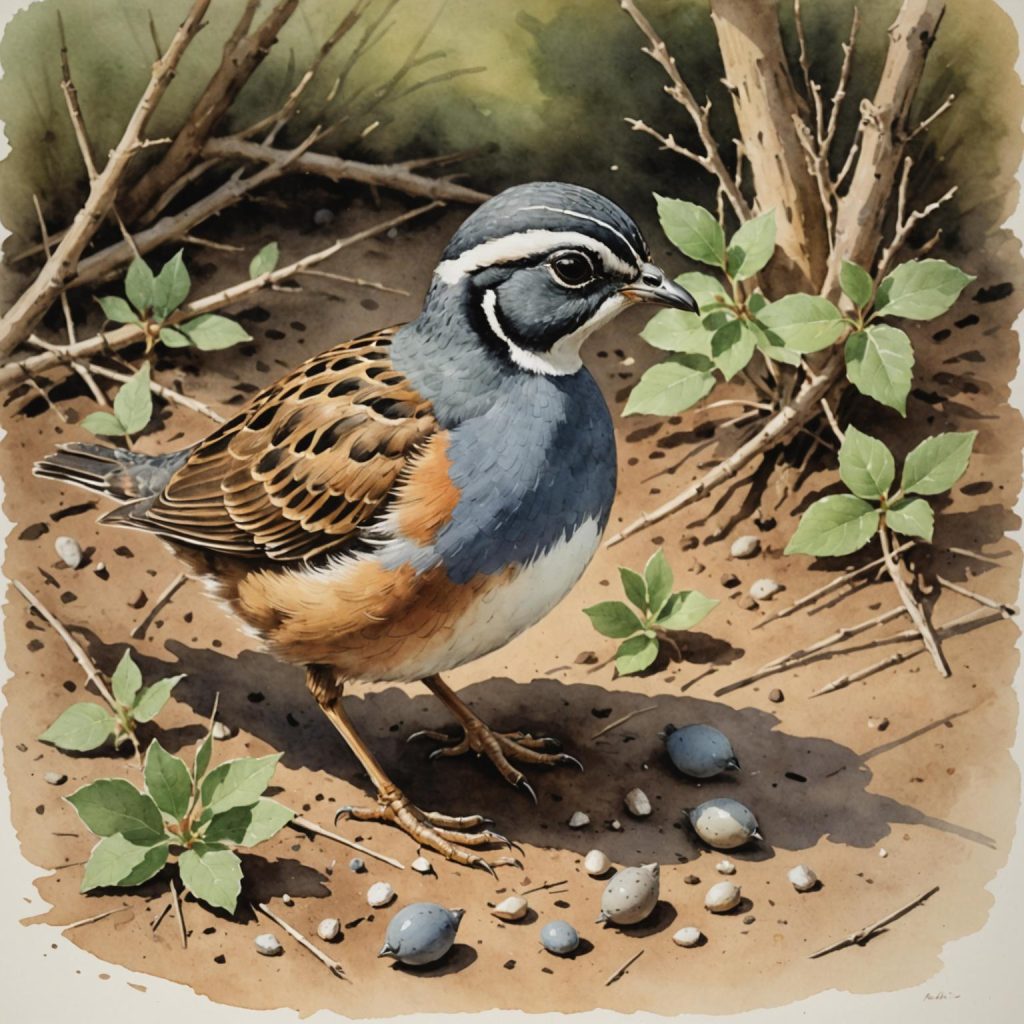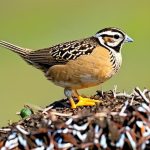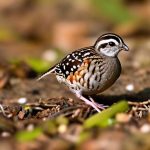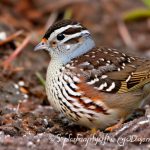Imagine walking thru a field on a sunny afternoon, when suddenly you stumble upon a tiny, fluffy baby quail.It’s a heartwarming sight, but you may find yourself wondering: what should you do next? In this article, we will explore the steps to take if you come across a baby quail, providing you with the knowledge and guidance to ensure its safety and well-being. So, whether you’re a seasoned bird enthusiast or simply a curious passerby, read on to discover how you can care for these adorable feathered creatures.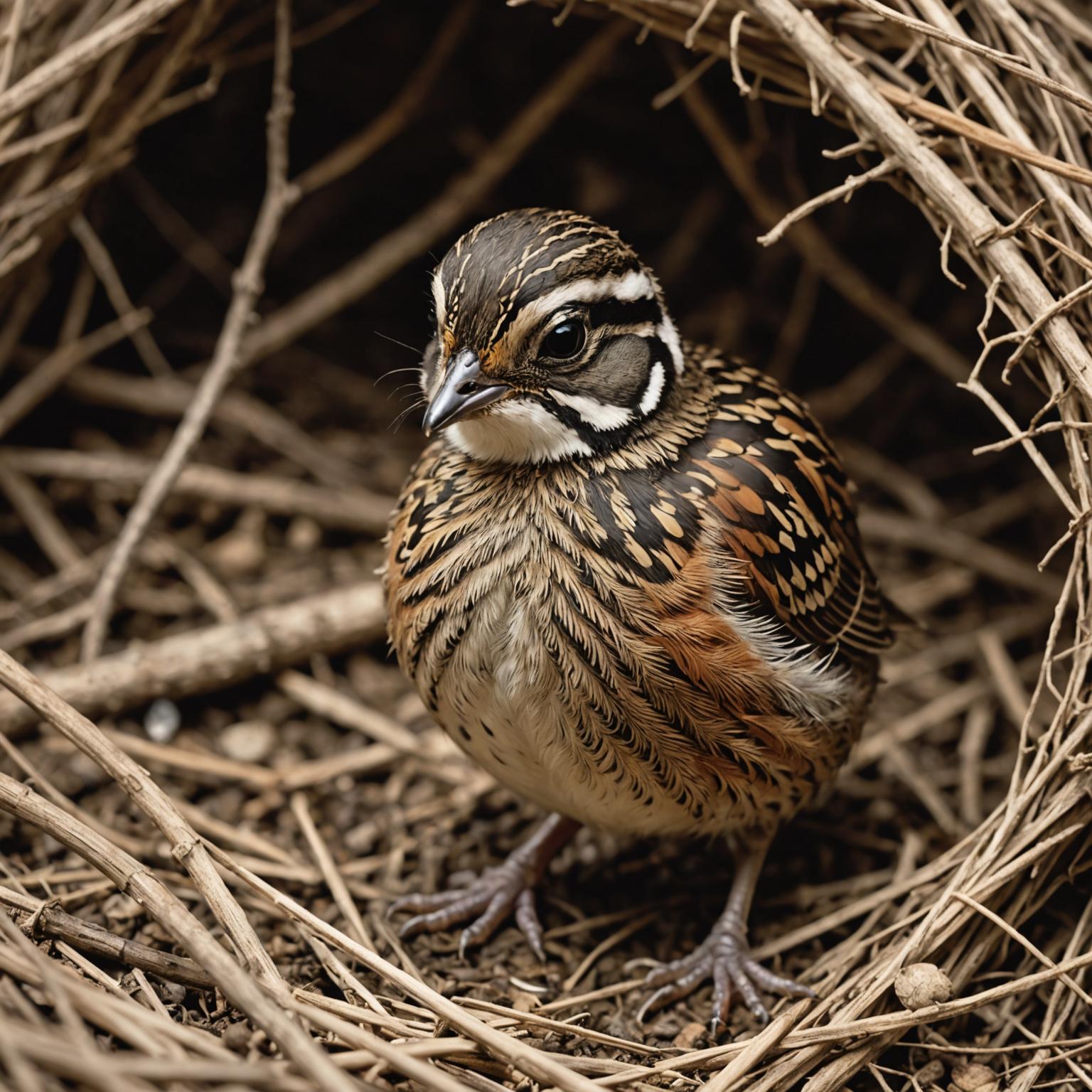
Table of Contents
How to Safely Approach a Baby Quail
One important thing to keep in mind when approaching a baby quail is to do so with caution and gentleness. Remember, these little creatures are very fragile and can easily be spooked. Here are some tips on :
- Move slowly and quietly towards the baby quail to avoid startling it.
- Avoid making sudden movements or loud noises that could scare the quail away.
- Use a soft, calm voice to reassure the baby quail that you mean no harm.
- Extend your hand slowly towards the quail, allowing it to see and smell you before attempting to pick it up.
It’s critically important to remember that baby quails are very delicate and should be handled with care. If you find a baby quail in distress, try to help it without causing further harm. By approaching the baby quail gently and calmly, you can ensure its safety and well-being.
Nurturing Tips for Caring for a Found Baby Quail
When caring for a found baby quail, it’s important to remember that these delicate birds require special attention and care to thrive. Here are some nurturing tips to help you provide the best care for your baby quail:
feeding: Make sure to provide a diet of crushed seeds, small insects, and commercial game bird feed for your baby quail. Feed them small amounts of food multiple times throughout the day to ensure they are getting the nutrition they need to grow and develop properly.
| Feeding Tips: | – Offer water in a shallow dish to keep them hydrated. |
| - Avoid feeding them bread or othre human foods that could be harmful to their health. | - Monitor their eating habits to ensure they are getting enough food. |
Importance of Contacting a Wildlife Rehabilitator
When you come across a baby quail that appears to be abandoned, it is indeed crucial to reach out to a wildlife rehabilitator as soon as possible.These experts are trained to provide proper care and rehabilitation for wild animals in distress, ensuring their well-being and chances of survival. It is important to remember that wild animals,such as quails,have specific needs that can onyl be met by professionals with the necessary knowledge and resources.
By contacting a wildlife rehabilitator, you are not only helping the individual animal in need but also contributing to the conservation and protection of wildlife populations. These dedicated individuals work tirelessly to rescue,rehabilitate,and release wild animals back into their natural habitats,playing a vital role in maintaining the balance of ecosystems.Remember,your actions can make a significant difference in the life of a baby quail and other wildlife in need.
Ensuring a Safe Release Back to the Wild
If you come across a baby quail that appears to be abandoned or injured, it’s critically important to take immediate action to ensure its safety and eventual release back into the wild. The first step is to carefully assess the situation and determine if the bird is in need of help. If the bird is injured or in distress, it may require professional care from a wildlife rehabilitation center.
Though, if the baby quail appears to be healthy and in no immediate danger, you can definitely help facilitate its safe release back into the wild by following these steps:
- Keep your distance and observe from afar to avoid stressing the bird.
- Do not attempt to handle the quail unless it is absolutely necessary.
- Provide a safe and quiet space for the bird to rest and recover.
Q&A
Q: What should I do if I find a baby quail?
A: If you stumble upon a baby quail, the first thing you should do is resist the urge to pick it up or disturb it.
Q: How can I determine if a baby quail is in distress?
A: Look for signs of distress such as lethargy, injuries, or separation from its family. If you notice any of these signs, it may be time to intervene.
Q: Should I try to care for the baby quail on my own?
A: It is indeed best to contact a local wildlife rehabilitator or animal rescue organization for proper care and advice.They have the necessary expertise to care for wild animals.Q: Is it okay to try and reunite the baby quail with its family?
A: If the baby quail is uninjured, warm, and appears healthy, you may attempt to reunite it with its family. Place it in a safe spot near where you found it and keep a close eye on it to see if the parents return.Q: How can I ensure the safety of the baby quail if I need to transport it to a wildlife rehabilitator?
A: Use a small,well-ventilated box with a soft cloth at the bottom to transport the baby quail. Keep the box in a warm, quiet place and avoid handling the quail unnecessarily.
Q: What should I do if I cannot locate a wildlife rehabilitator?
A: Contact your local animal control or wildlife agency for guidance on what to do next. They may be able to provide resources or put you in touch with someone who can help.
To Wrap It Up
coming across a baby quail can be both a surprising and rewarding experience. By following the guidance provided in this article, you can ensure the safety and well-being of these adorable birds. Remember, nature has its ways of taking care of its own, so sometimes the best thing to do is simply observe from a distance and let Mother Nature do her magic. If you have any further questions or concerns, don’t hesitate to reach out to your local wildlife rehabilitation center for assistance. And who knows, maybe one day that little baby quail you helped will return to visit you in your garden, a gentle reminder of the beauty and wonder of the natural world.
Meet Walter, the feathered-friend fanatic of Florida! Nestled in the sunshine state, Walter struts through life with his feathered companions, clucking his way to happiness. With a coop that’s fancier than a five-star hotel, he’s the Don Juan of the chicken world. When he’s not teaching his hens to do the cha-cha, you’ll find him in a heated debate with his prized rooster, Sir Clucks-a-Lot. Walter’s poultry passion is no yolk; he’s the sunny-side-up guy you never knew you needed in your flock of friends!

